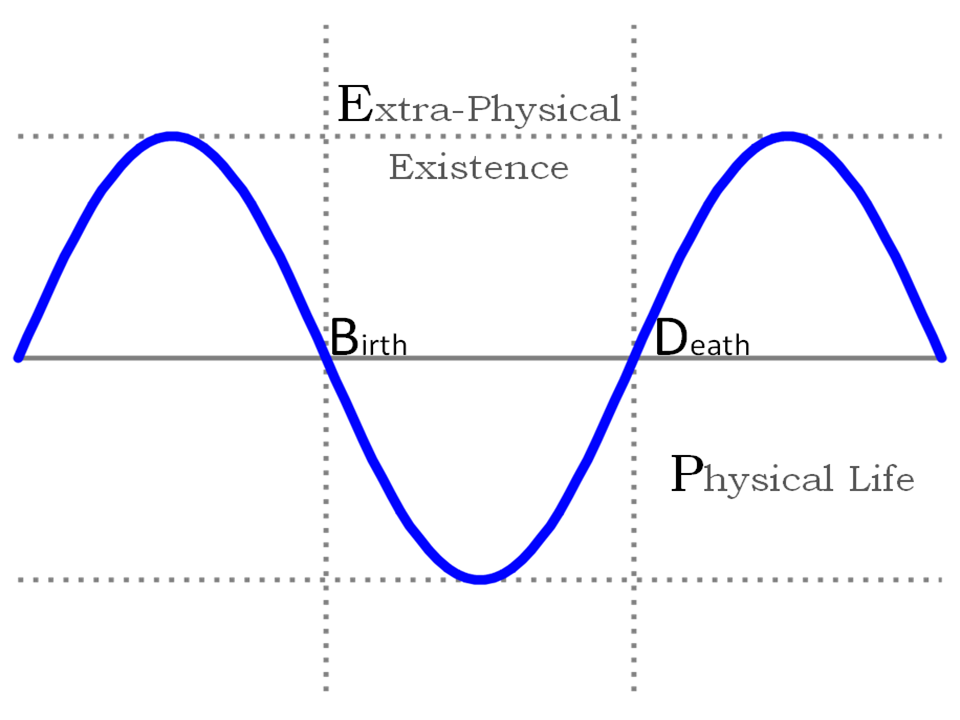THE THEORY BEHIND PAST LIFE REGRESSIONS
Towards a Working Hypothesis
|
The idea of reincarnation (consciousness living through a series of lives) has been around since times immemorial. It constitutes a central tenet in some of the world's great religions (notably Hinduism and Buddhism) and can be found in some of the esoteric schools of other religions, as well (e.g. Sufism, Gnosticism). The concept resonates with many people on an individual level, especially those of us who are born aware of the multidimensional world or else have access to past life recollections.
|
In recent times, the topic has become interesting not only from a philosophical but an empirical point of view. A number of researchers (notably Ian Stevenson, Jim Tucker, Erlendur Haraldsson) collected and verified cases in which children remembered past existences. Since the beginnings of humanistic psychotherapies, cases also began to emerge from therapy sessions (sometimes under hypnosis or other altered states of consciousness) in which individuals recovered memories which seem to come from times before their birth.
|
What makes these cases particularly interesting is their congruence with other experiences of consciousness existing outside of the body (including near-death, temporary death, and shared death experiences).
These kind of experiences are important because they:
This congruence and significance certainly calls for an empiric study of these cases. However, within the current, materialist paradigm - which assumes that consciousness is a product of the brain - all these cases remain a logical impossibility. |
When a large number of cases turn out to be congruent, we have a situation like early geographic explorers returning from their expeditions. When the first explorer came back with the description of an "animal as large as a room, legs the sizes of tree trunks and a nose which can drink a bath-tub full of water," people might have though he had too much rum on board. However, when hundreds of similar descriptions came in all similar in their narrative, people started to acknowledge that there might be such a thing as an elephant after all.
|
To study them, we must go back to the foundations of science and the assumptions it is based on.
Assumptions: Consciousness & Evolution
Our mainstream science is based on the assumption that matter is the fundamental and consciousness is derivative of matter. This is an assumption which is works well for explaining and manipulating the physical (manifested) universe. In fact, it has worked so well for so long that people began to mistake the assumption itself for a scientific fact. However (as Thomas Kuhn pointed out) an assumption is not in itself a fact, not something that can be proven - but must be chosen for its usefulness.
If we use the same material assumption for the study of consciousness, it is no longer useful. Material science has failed to contribute anything significant to our understanding of the mind. Phenomena such as out-of-body, near-death or past life experiences are dismissed as impossible anomalies which leaves everyone frustrated who has had such experiences and wants to understand them.
If we use the same material assumption for the study of consciousness, it is no longer useful. Material science has failed to contribute anything significant to our understanding of the mind. Phenomena such as out-of-body, near-death or past life experiences are dismissed as impossible anomalies which leaves everyone frustrated who has had such experiences and wants to understand them.
|
However, if we remember that an assumption is not in itself a scientific fact but a starting point for logical investigation chosen for its usefulness, we can create a new paradigm. We can turn the assumption around and regard consciousness as fundamental and matter derivative of consciousness.
That way, an entirely new universe seems to open itself up for investigation if we regard consciousness not only as fundamental but capable of evolving over time. |
"I regard consciousness as fundamental. |
The Seriality of LifeGiven these two new assumptions:
consciousness as being fundamental and the evolution of consciousness, we can pay attention to all the data which suggests that life may not be a one-time event rather a cyclical (spiraling, evolving) type of experience. Consciousness if not bound by the physical, can enter a non-physical state after death, in which preparations for a new life may begin. |
What happens during past life regressions?
The honest answer at this stage of research is that no one knows for sure. Initially, it was therapists who did regression work (bringing back their clients into childhood experiences) who discovered that they can go before childhood, into the birth experience, and even beyond that. Thus it was discovered that there is something in the psyche which is able to tap into memories older than the physical brain. The exact mechanism how that occurs, is still unknown, yet the emerging information is proving to be therapeutically valuable.
When we do past life regressions (retrocognitions), information which emerges can be used for:
When we do past life regressions (retrocognitions), information which emerges can be used for:
- healing trauma and psychosomatic illnesses,
- understanding and overcoming conflict,
- development of empathy,
- self-exploration and
- finding and fulfilling one's unique life mission (existential program).
How accurate are past-life memories?
According to modern psychological research, memory is not so much some fixed data-base rather an organic flow which changes as our present interpretation of reality changes. Keeping this floating nature of memory in mind, it is doubly unlikely that past life memories emerging from therapy sessions will be precise and historically accurate in most cases. (Therefore, if someone's main goal is to find proof for reincarnation, the study of children's memories of past lives is probably more suitable, as those recalls occur spontaneously and without any adult "agenda.")
Past life memories, however, tend to be psychologically surprisingly accurate: they express inner truths which have the power to change a person's life for the better. Like dreams or material emerging from creative visualization, they bring up real emotions, help to clear up real issues, and open new pathways. Engaging with them helps to see patterns of the past, present, and the future for life to unfold new and enhanced meaning.
Past life memories, however, tend to be psychologically surprisingly accurate: they express inner truths which have the power to change a person's life for the better. Like dreams or material emerging from creative visualization, they bring up real emotions, help to clear up real issues, and open new pathways. Engaging with them helps to see patterns of the past, present, and the future for life to unfold new and enhanced meaning.
The Implications of Retrocognitions
|
When a person feels ready and makes the effort of remembering past lives - which can be a long and sometimes rocky journey - an entire new vision of who they are opens up to them.
Events, challenges and lessons of the past (whether from this or a previous life) connect like dots on a picture, to form a panoramic view about where they come from, who they are and where they are going. Spiritual traditions from different cultural backgrounds hold that at a certain stage of conscious development it becomes inevitable to remember past lives in order to move on. From my therapeutic practice and personal journey I have found this to be quite true. Once past lives are discovered, the individual becomes fully committed to serve evolution for the sake of happiness, not just the own, but all other sentient beings. |


